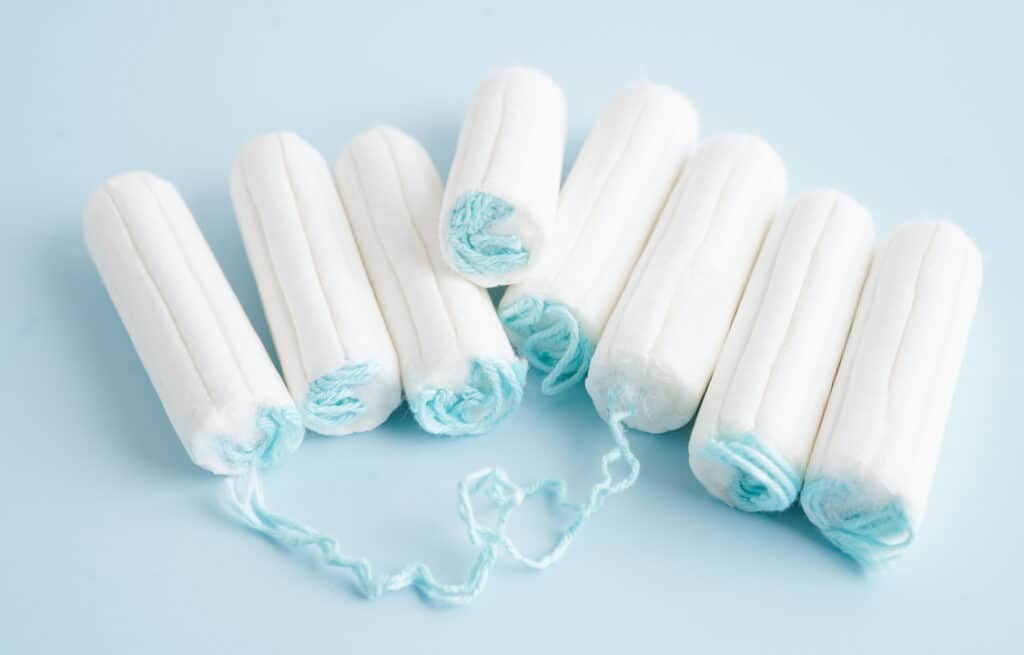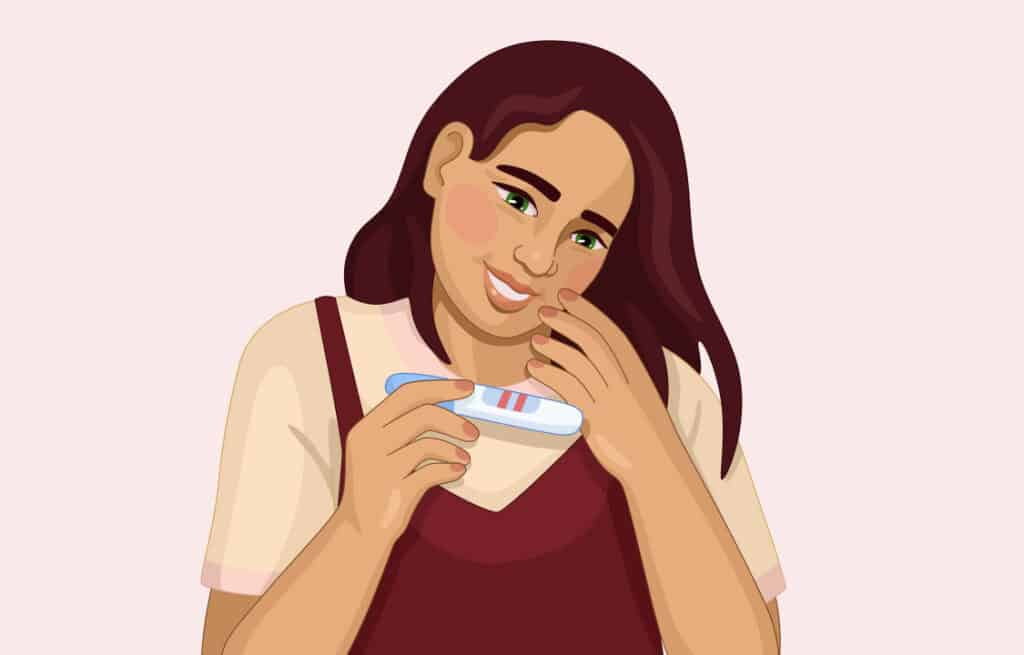Femia > Health Library > Your cycle > Health > Sex after menopause: 10 tips to have orgasms after menopause
Sex after menopause: 10 tips to have orgasms after menopause

- Updated Mar 2, 2025
- Published
CRAFTED BY HUMAN
Crafted by human At Femia, we provide accurate and up-to-date information at every stage of your journey, from trying to conceive, pregnancy and postnatal support. All content is created by a real person based on in-depth research and own professional experience. Femia ensures that you will receive expert advice, strict accuracy and a personalized approach from our authors/medical experts. Learn more about our editorial policy.
FACT CHECKED
Fact checked At Femia Health, we maintain the highest standards of editorial excellence in delivering content focused on helping you conceive, guiding you through pregnancy, and supporting you postpartum. Explore our content review principles to learn how we ensure the accuracy and quality of our health and lifestyle tips for every stage of your journey.
Sex after menopause, while desirable, can seem overwhelming. Considering all the physical changes such as weight gain, vaginal dryness, and vanishing libido, finding pleasure in the process may seem like a futile effort. However, having pleasurable sex, and achieving orgasm continue to remain possible even in menopause.
Based on your specific perimenopausal concerns, you can opt for tailored options such as hormonal therapy, lubricants, or sex-specific counseling to help you enjoy sex well into your menopausal years.
Once you reach your mid-40s, inching into your 50s, your estrogen starts to decline. During perimenopause, you may experience a vanishing sex drive.
Adding to it, the menopausal physical changes such as hot flashes, weight gain, vaginal dryness, and intrusive mood fluctuations, fuel concerns relating to pleasurable sex after menopause.
However, reassuringly, for many women, satisfying sex is attainable even during menopause. It is possible to have fulfilling orgasms and even squirt during sex years after perimenopause. In this article, we will look through how your body will change during menopause and the simple techniques you can adopt to improve sex after menopause.

Menopause and sex: What changes and why?
The sex hormone, estrogen, plays a significant role in the neurological functioning linked to sexual arousal and behavior. Declining estrogen is therefore associated with a decrease in your perimenopause sex drive. Additionally, low estrogen levels cause vaginal atrophy, decreased vaginal lubrication, and lower clitoral sensitivity, making sex less pleasurable and in some cases painful as well. A decline in your natural androgens, testosterone, has also been linked to changes in sexual arousal during menopause.
Along with the physical changes, your mood, self-esteem, and other stressors may impact your feelings toward sexual intimacy. Your relationship with your partner and its constraints can also influence how you approach sex after menopause. Sexual intimacy while going through menopause might require a wholesome look at different aspects of your life and not just the physical changes.
👉Find out more: Can you get pregnant during perimenopause?
At what age does a woman stop being sexually active?
Sexual desire differs from one person to the next. Frequently, hormones have only a little to do with your sex drive even after menopause. The physical changes are just a hindrance to the desire, and we shall soon see how to overcome some of these challenges faced during perimenopause to menopause.
Some of the underlying reasons why sex may be infrequent during menopause include:
- Your cultural influences: A review of clinical literature highlighting women’s experiences with sexual intimacy highlighted that cultural influences also impacted views on sex and desire after menopause. Many women shared how they felt that menstruation was a sign of femininity which was absent during menopause.
- Absence of a sexual partner: Among the primary reasons for reduced sexual intimacy in this study analyzing sexual activity for women between 50-75 years, was the absence of an intimate partner. Women, compared to men, were less likely to engage in intercourse if they were not in a steady relationship during menopause.
- Declining health: Among partnered women, in the same study, only one-third reported being sexually active in the preceding month. Poor health was cited as a primary reason, either for themselves or their partners.
This makes sex after menopause a nuanced challenge, but not absent from a woman’s life unless she chooses it for herself.
Can a woman orgasm after menopause?
While it may take some time (and maybe new techniques) to reach an orgasm during menopause, rest assured you will be able to achieve orgasm even after menopause.
Since lubrication has decreased, blood flow causing arousal diminishes, and the physical discomforts of sex orgasms can be delayed. Additionally, with declining estrogen levels your pelvic floor muscles also lose some of their strength. Their contraction is what contributes to the heightened feeling during an orgasm, resulting in struggles with orgasm during sex after menopause.
Why can’t I orgasm anymore after menopause?
It may feel like an overnight occurrence that your perimenopause sex drive has diminished. Your orgasm might also take longer to come. And when it does, it may not feel as intense as it used to. As we have highlighted above, much of this has to do with the hormonal fluctuations you are experiencing.
While we will explore some tips on achieving an orgasm shortly, consider taking time to assess what works for you sexually. You may require some patience and practice to find your orgasm in sex after menopause. Additionally, you may also have to communicate what works for your orgasm with your partner as sexual pleasure evolves during perimenopause.
Can you squirt after menopause?
Only about 10-40% of women experience some fluid emission during orgasm. This may also be occasional, and not regularly seen with every orgasm. So if you haven’t squirted you are in the majority that has never experienced it.
If you do squirt, your squirt fluid is a combination of liquid from your bladder and paraurethral glands. Sometimes only one of the two may be present when you squirt following your orgasm.
As we have just seen, since the pelvic floor muscles weaken, both as you age and during menopause, the intensity of your orgasm decreases. Simultaneously, the degree and amount of liquid you squirt may also decrease. Additionally, with delayed orgasms, squirting may also take some time during sex after menopause.
How do hormonal changes affect squirting after menopause?
Estrogen is the primary player for your less frequent squirt following an orgasm during menopause. With low circulating estrogen, resulting in vaginal dryness, decreased lubrication, and pelvic floor weakness, your orgasm may not feel as intense as it used to. Similarly, with reduced strength in your orgasm, the intensity of your squirt may also not be as satisfactory.
So while the intensity and frequency of your squirt decreases, if you have before you are likely to squirt during sex after menopause as well. It may just take some practice and patience.
Techniques to enhance your chances of squirting after menopause
Squirting after menopause may first require some getting used to sex after menopause. Since sex drive, arousal, and even your orgasm are infrequent in perimenopause, you may have to wait some time before you squirt again during sex.
Start with communicating with your partner about how sex feels in menopause. Since vaginal dryness is a new overnight concern, consider lubricating well with water-based lubricants during intercourse. What may have previously worked in bringing about an orgasm may not now. So explore new ways to encourage your orgasm. With time, the intensity of your orgasm, and your squirt, can increase during menopause.
10 tips to have orgasms and enjoy sex after menopause
1. Talk to your doctor about HRT
Hormonal replacement therapy (HRT) can help with some troubling symptoms of menopause, such as hot flashes, mood changes and vaginal dryness. Initially, your physician may recommend vaginal creams or moisturizers which can also contain hormones improving vaginal thickness. Ospemifene is a newly FDA-approved medication that works on estrogen receptors improving the structure and pH of the vagina, reducing postmenopausal pain during sex.
2. Don’t be shy with the lubricant
Declining estrogen levels may result in less lubrication after arousal. Even during intercourse, you may frequently dry out, which can cause pain affecting your sexual experience. Using lube before and during intercourse can help reduce friction during sex. Water-based lubricants are recommended for their natural ingredients and fewer genital adverse effects.
3. Bring in some sex toys
If you haven’t before, consider using sex toys to explore what feels good for you during sex. Sometimes solo play before partnered sex can give you a better idea of what makes you orgasm after menopause. Sex toys can also be used during sex, especially since it might take longer to reach orgasm, taking some of the pressure off your partner.
4. Re-evaluate what sex works during menopause
Menopause and sex may not be made for each other. However, women enjoy sex many years after their first signs of perimenopause. If penetrative sex is painful, consider solo play, partnered masturbation, or oral sex. Lube use can help during penetrative intercourse. Your partner is probably also experiencing changes as they age. Understanding how their health impacts your sex life will also provide a new perspective on intimacy during menopause.
5. Consider sex therapy
There are many emotional and even cultural aspects as to why sex may not be working as it used to during menopause. Talking it over with a trained professional might help provide insights into some of these concerns. Take your partner in for a few sessions, as it can help you both open up about your concerns and how to work through them to enrich your sexual life after menopause.
6. Communicate openly with your partner
There is a good chance your partner has similar apprehensions about sex as you do, especially if you both have been together for a while. The concerns of health with age, along with sexual desire can change. Talking openly and regularly can help lighten the load placed on partner satisfaction toward something that works for both of you.
7. Invest in your lifestyle
Among data collected from a few National surveys, health concerns between partners were seen as a primary cause of declining sexual relations, coming second after the loss of one’s partner. Maintaining optimum health parameters such as weight, blood pressure, cholesterol levels, etc, contributes extensively to your sexual performance. Not to mention how it adds to your confidence and self-esteem – which can affect sex after menopause.
8. Get enough sleep every night
In a study of 3,433 women, poor sleep quality was linked with sexual dysfunction. In the same study, women who slept for less than five hours a night were more likely to experience sexual dysfunction. If you are well-rested, you are more open to having sex, and exploring new ways to achieve satisfactory sex after menopause.
9. Regularly practice your pelvic floor exercises
Age, pregnancy, childbirth, and weight gain, can all weaken your pelvic floor muscles. Weak pelvic floor muscles are responsible for a delay and weak orgasms in menopause. Regular pelvic floor exercises, such as your Kegels and reverse Kegels, can help strengthen your pelvic floor, improving orgasm after menopause. If you experience pain during sex, consider a pelvic floor massage to help your muscle strength, improving sexual well-being.
10. Make sex a priority
You may have heard the phrase, “use it or lose it,” and this may apply to sex in your menopausal years as well. The longer you refrain from sex, the farther away you are from knowing what feels good for you. Along with other physical changes, your sexual desire may wane. However, having sex helps you understand what still feels good for you. Not to mention the long list of physical benefits you continue to gain from sex. Sex is also a great way to remain connected in your relationship, even if it means you have to schedule it to make sure you engage in it.
👉Find out more: Managing perimenopause joint pain: Effective treatments and relief strategies
When to see a doctor
Sex after menopause is often overlooked because of the long frustrating list of other concerns you are already dealing with. Consider a regular check-in with your healthcare provider during perimenopause to discuss evolving symptoms and their impact on your sex life.
You may want to discuss the following at any visit if it impacts you during menopause:
- Pain during sex: Both vaginal dryness and reduced lubrication are seen in over 90% of women following menopause. These are the primary reasons why sex can be painful during menopause.
- Diminished libido: You may also have a reduced perimenopause sex drive, which might be affecting your relationship with your partner. Your doctor may discuss HRT with you, and also refer you and your partner for sex therapy to explore other causes affecting your sex drive.
- Medication during menopause: Before considering any medication, even over-the-counter creams, ask for the risk of adverse effects along with any other interactions with any other medicines you might be taking.

Questions from the Femia community
How can I boost my libido naturally during menopause?
Maintaining a healthy lifestyle and getting enough rest at night can ensure you continue to have an interest in sex. Consider adding phytoestrogens to your diet, through soy, flax seeds, nuts, and some herbs, to give you a natural estrogen boost for your libido.
Are there natural or medical treatments for menopausal sex issues?
Naturally, you can consider adding lubricants and vaginal moisturizers for concerns such as vaginal dryness during sex after menopause. Regular pelvic floor exercises can help to strengthen your vaginal walls, and can also boost your orgasms. For medical management speak with your healthcare provider for options such as vaginal estrogen creams or hormone replacement therapy.
How can I increase estrogen after menopause?
Your doctor can evaluate your requirement for hormone replacement therapy during perimenopause to help you increase estrogen once it starts declining. Some foods such as soy, flax seeds, sunflower seeds, almonds, and other nuts contain phytoestrogens, which can provide you with small doses of estrogen for a natural boost.
Will I go back to normal after menopause?
At the onset of perimenopause, new symptoms will appear as your estrogen starts and continues to fall. This can last for a few years until you reach menopause. After a few years, these symptoms start to disappear and you will start to feel better. While you may not feel completely like your former self, you will find a new normal during your menopausal years.
The bottom line
While menopause may seem to signal the end of your sex life, it isn’t so.
Women continue to enjoy sex, with just a few changes many years into menopause. Understanding your concerns about sex after menopause, related to your sex drive or urogenital struggles is important. Management of your concerns often requires a holistic approach to dealing with your physical and emotional well-being for a better sexual experience.
Solutions such as hormone replacement, vaginal moisturizers, and lubricants are easily available to tackle frustrating menopausal symptoms affecting your sex life.
Additionally, open communication with your partner can help you explore new avenues for sexual pleasure as you age. Do not hesitate to talk to your doctor about anything that might be hindering your ability to enhance your sexual wellness.
References
- Cappelletti, Maurand, and Kim Wallen. “Increasing Women’s Sexual Desire: The Comparative Effectiveness of Estrogens and Androgens.” Hormones and Behavior, vol. 78, Nov. 2015, pp. 178–93. https://doi.org/10.1016/j.yhbeh.2015.11.003.
- Brzozowska, Maria, and Andrzej Lewiński. “Changes of Androgens Levels in Menopausal Women.” Menopausal Review, vol. 19, no. 4, Jan. 2020, pp. 151–54. https://doi.org/10.5114/pm.2020.101941.
- Bulut, Hatice, et al. “Women’s Experiences of Intimate and Sexual Relationships During Menopause: A Qualitative Synthesis.” Journal of Clinical Nursing, Sept. 2024, https://doi.org/10.1111/jocn.17436.
- Harder, Helena, et al. “Sexual Functioning in 4,418 Postmenopausal Women Participating in UKCTOCS: A Qualitative Free-text Analysis.” Menopause the Journal of the North American Menopause Society, vol. 26, no. 10, July 2019, pp. 1100–09. https://doi.org/10.1097/gme.0000000000001377.
- Omodei, Michelle Sako, et al. “Association Between Pelvic Floor Muscle Strength and Sexual Function in Postmenopausal Women.” The Journal of Sexual Medicine, vol. 16, no. 12, Oct. 2019, pp. 1938–46. https://doi.org/10.1016/j.jsxm.2019.09.014.
- Shin, Jae Jun, et al. “Ospemifene: A Novel Option for the Treatment of Vulvovaginal Atrophy.” Journal of Menopausal Medicine, vol. 23, no. 2, Jan. 2017, p. 79. https://doi.org/10.6118/jmm.2017.23.2.79.
- Sarmento, Ayane Cristine Alves, et al. “Use of Moisturizers and Lubricants for Vulvovaginal Atrophy.” Frontiers in Reproductive Health, vol. 3, Dec. 2021, https://doi.org/10.3389/frph.2021.781353.
- Karraker, Amelia, et al. “Sexual Frequency Decline From Midlife to Later Life.” The Journals of Gerontology Series B, vol. 66B, no. 4, June 2011, pp. 502–12. https://doi.org/10.1093/geronb/gbr058.
- Kling, Juliana M., et al. “Associations of Sleep and Female Sexual Function: Good Sleep Quality Matters.” Menopause the Journal of the North American Menopause Society, vol. 28, no. 6, Apr. 2021, pp. 619–25. https://doi.org/10.1097/gme.0000000000001744.
- Moral, E., et al. “Genitourinary Syndrome of Menopause. Prevalence and Quality of Life in Spanish Postmenopausal Women. The GENISSE Study.” Climacteric, vol. 21, no. 2, Feb. 2018, pp. 167–73. https://doi.org/10.1080/13697137.2017.1421921.

Learn effective self-care tips for managing endometriosis symptoms and optimizing fertility. Discover how diet, exercise, and stress management can improve your quality of life.

Toxic chemicals in tampons: Learn more about the details of recent study findings, the possible health implications, and the overall safety of tampons.

Discover key signs your body is ready for pregnancy. Learn how to know if you’re fertile enough to get pregnant: physical indicators, medical tests, etc. Expert advice from Femia.

